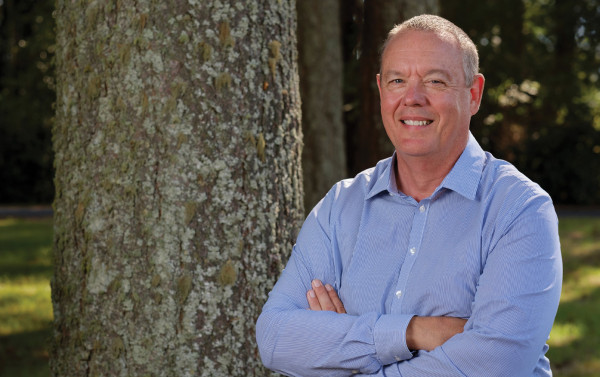Celebrating the past while we shape the future

Dr Julian Elder, Chief Executive, Scion
This year, 2022, is very significant for Scion. Firstly, we turn 75! In these turbulent times, it’s great to have a milestone like this where we can take stock and have a moment to reflect on the wealth of science conducted and the breakthrough innovation delivered by hundreds of staff to the sectors we serve.
Secondly, in this year, Scion’s future state will be discussed as part of a multi-year programme on the future of New Zealand’s research, science and innovation (RS&I) system. In this editorial, I wish to focus on the next 75 years by describing our participation in the Te Ara Paerangi – Future Pathways Green Paper.
The green paper is a consultation document that sought wide-ranging feedback and ideas on reforming the research system. When Te Ara Paerangi was launched in October 2021, Research, Science and Innovation Minister Dr Megan Woods said, “The world is a very different place now to when our Crown Research Institutes were created in the 1990s … our RS&I system has served Aotearoa exceptionally well, but now it’s time to ask whether the system is set up as well as it can be to answer today’s pressing environmental, economic and social challenges, like climate change and child poverty”.
Scion positively welcomed the opportunity given by the green paper to air our views about the challenges of operating in the current RS&I system. Our submission was developed with the input of staff across the organisation. First up, we agree with and support the intent of Te Ara Paerangi – Future Pathways. Four key points are emphasised in our submission:
- Change is necessary and overdue to address complex challenges
- Better delivery to and with Māori and the weaving of Matauranga Māori and our research activities
- Co-designing clear, high-level national priorities makes sense with a focus on delivering outcomes through research being used by end users, and
- More government and private sector investment is needed.
Scion illustrated these points by describing the journey we embarked on to develop our Strategy to 2030 because we saw a need to change the RS&I system. Our government-assigned purpose is to drive innovation and growth in certain sectors for the economic, social and environmental benefit of New Zealand. Unfortunately, the current funding system is not aligned to this purpose and leaves us highly constrained in how we operate.
Despite these constraints, we have delivered significant benefit to New Zealand and have been progressing our journey in partnership with Māori and tangata whenua. We are well aware, however, that we could have done much more for our sectors if the system enabled us to do so.
That’s why it’s important to have a say in this review process. Submissions on the green paper have closed, but we all have another chance to provide input. Next up, hopefully by the end of the year, will be the release of a ‘white paper’, which will be a strategy document presenting a direction for the RS&I system with opportunities for further consultation.
I strongly urge our partners, stakeholders and end users to engage with the white paper to ensure we design a system that better lets us deliver impact and to do so in partnership. Help make sure that there are clear and uncomplicated problem definitions that suggested solutions will fix. Be sure also, to help prevent dropping the current activities that are delivering well.
How we respond this year to consultation opportunities will set the path for the next generation and beyond. As we celebrate our 75th anniversary in 2022, we look forward to another 75 years of impact for Aotearoa New Zealand.